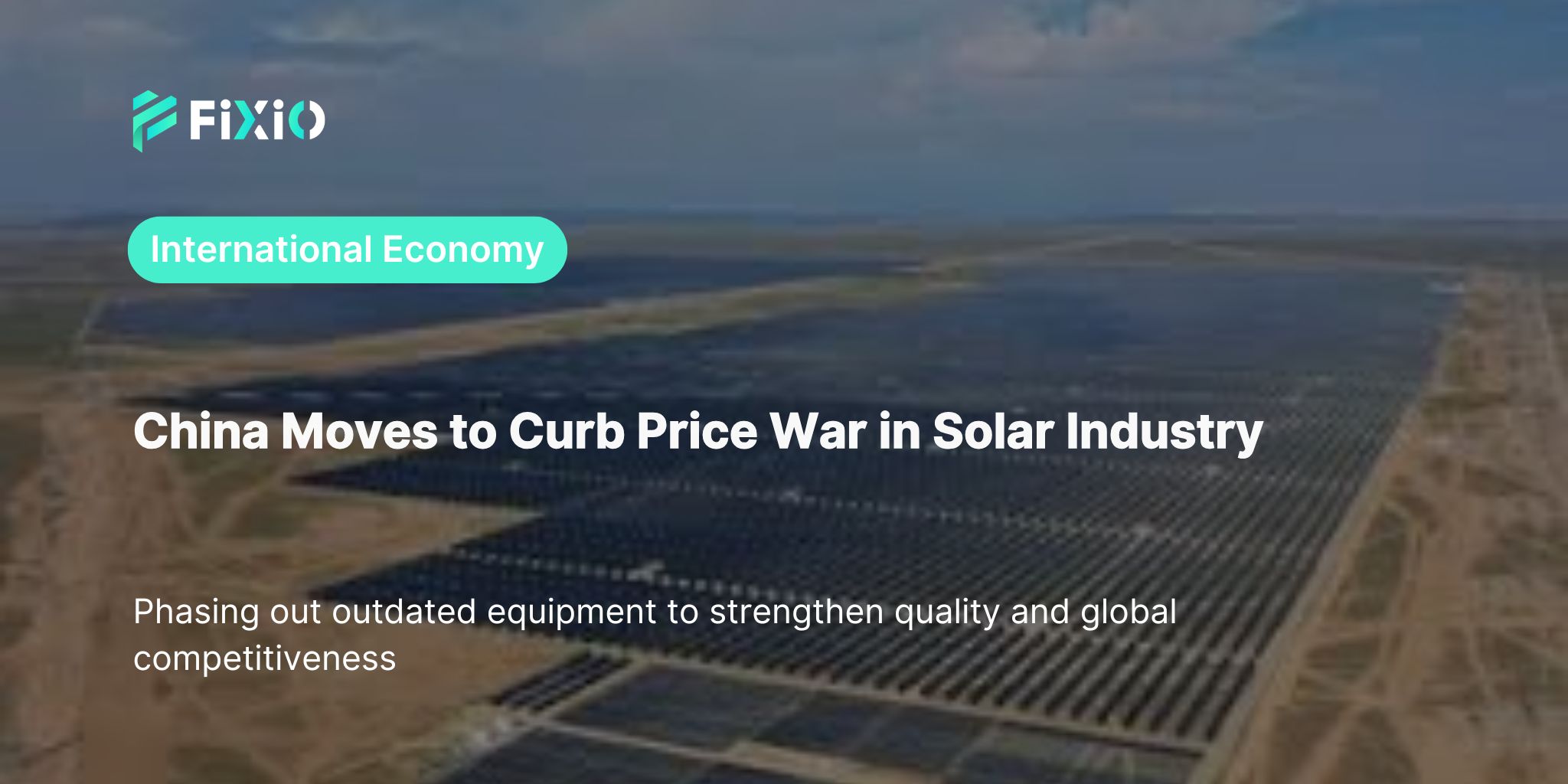
On July 3, 2025, the Chinese government announced a policy aimed at structural reform in the rapidly growing domestic solar industry. The Ministry of Industry and Information Technology officially declared its intent to guide the phase-out of outdated equipment through meetings with industry groups and major companies, and to promote a system that emphasizes quality.
Solar power has played a central role in China's renewable energy policy, but in recent years, oversupply and cutthroat pricing have raised questions about the industry's sustainability.
China’s solar panel manufacturing sector now accounts for about 80% of global production. However, this growth has come with rampant expansion and constant price competition. In particular, small and medium-sized manufacturers have sought to capture market share through aggressive pricing, leading to a drop of over 30% in average selling prices per panel over the past two years. This trend has affected even major players, with some reporting losses and idle production lines.
According to the Ministry, leaving the situation unchecked would compromise the industry's overall health, and the current measures are being positioned as a "turning point in industrial policy."
In an official statement, Minister Jin Zhuanglong of the Ministry of Industry and Information Technology stated:
"We will rebuild the solar power industry to be more competitive by stabilizing market volatility and raising quality standards. Outdated facilities will be phased out, and the adoption of new technologies will be encouraged."
He also called on industry groups to strengthen self-regulation to safeguard market health and stated that local governments will be guided to revise corporate incentive and subsidy policies.
Following the policy announcement, leading solar panel manufacturer LONGi Green Energy Technology told the China Securities Journal that it will "further accelerate mass production of high-efficiency cells and panels." The company expressed active support for next-generation technology, such as shifting from P-type to N-type cells, acknowledging that "moving away from a low-price strategy" is a key industry challenge.
Other listed manufacturers have made similar remarks, and industry observers expect a wave of consolidation and exit among smaller players in the near future.
China’s new policy is expected to impact not only the domestic market but also the global solar industry. For projects in Europe, the United States, and India, the price and quality of Chinese panels are directly linked to project profitability.
This policy may drive up export prices of Chinese panels, raising concerns about procurement costs. However, improved quality could enhance global competitiveness in the long term and contribute to a decarbonized future.
China, once synonymous with “low-cost solar panels,” is now poised to challenge the global market with “high-quality, high-efficiency” products. The united effort of the government and companies to rationalize overcapacity could mark a maturing point for the entire industry.
The effectiveness of policy enforcement, cooperation with local governments, and corporate investment in technology will be key points to watch. For renewable energy investors and energy sector companies, China’s next steps may become a critical factor in strategic planning.
FIXIO delivers real-time updates on global energy and economic news like this.
For insights into policy changes, industry analysis, and investment strategies, check out the blog below.
This article explains China’s policy developments in the solar power industry and highlights their potential impact on global markets and energy investments.
Superior trade execution & trading conditions with the NDD method.

The online FX industry provides a platform for investors worldwide to engage in the buying and selling.

Subscribe to our daily newsletter and get the best forex trading information and markets status updates
Trade within minutes!
Comment (0)